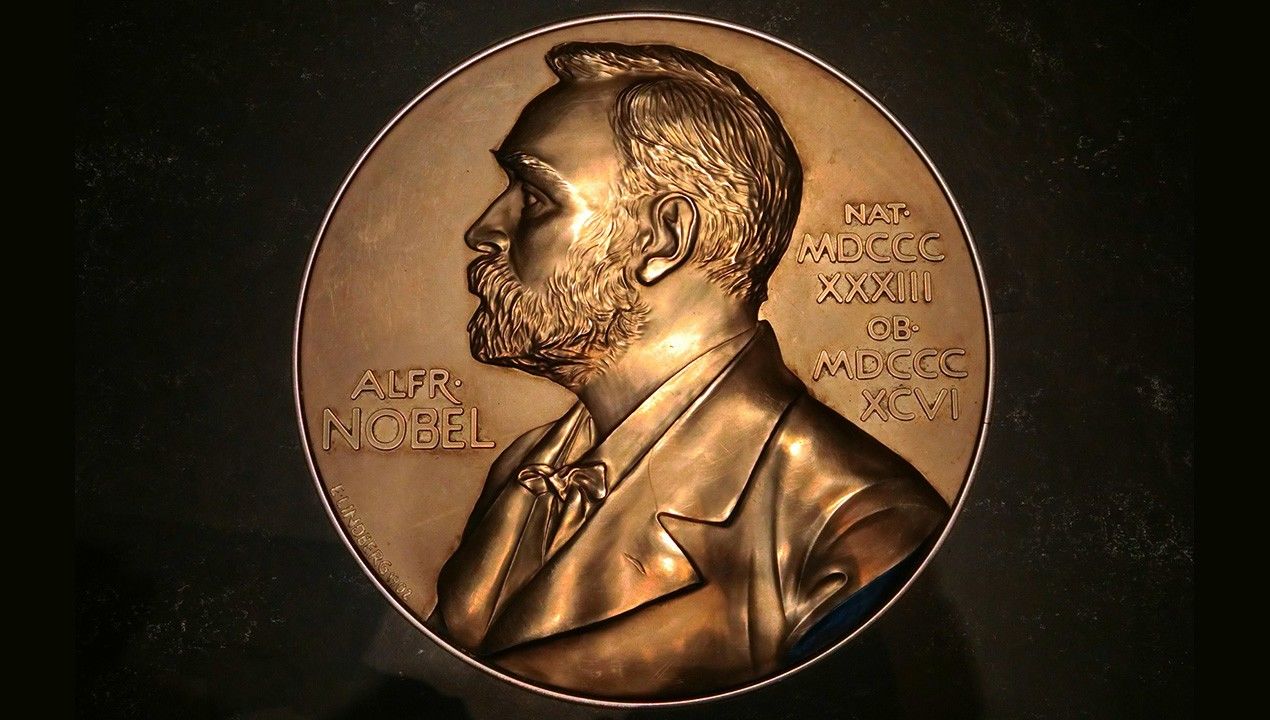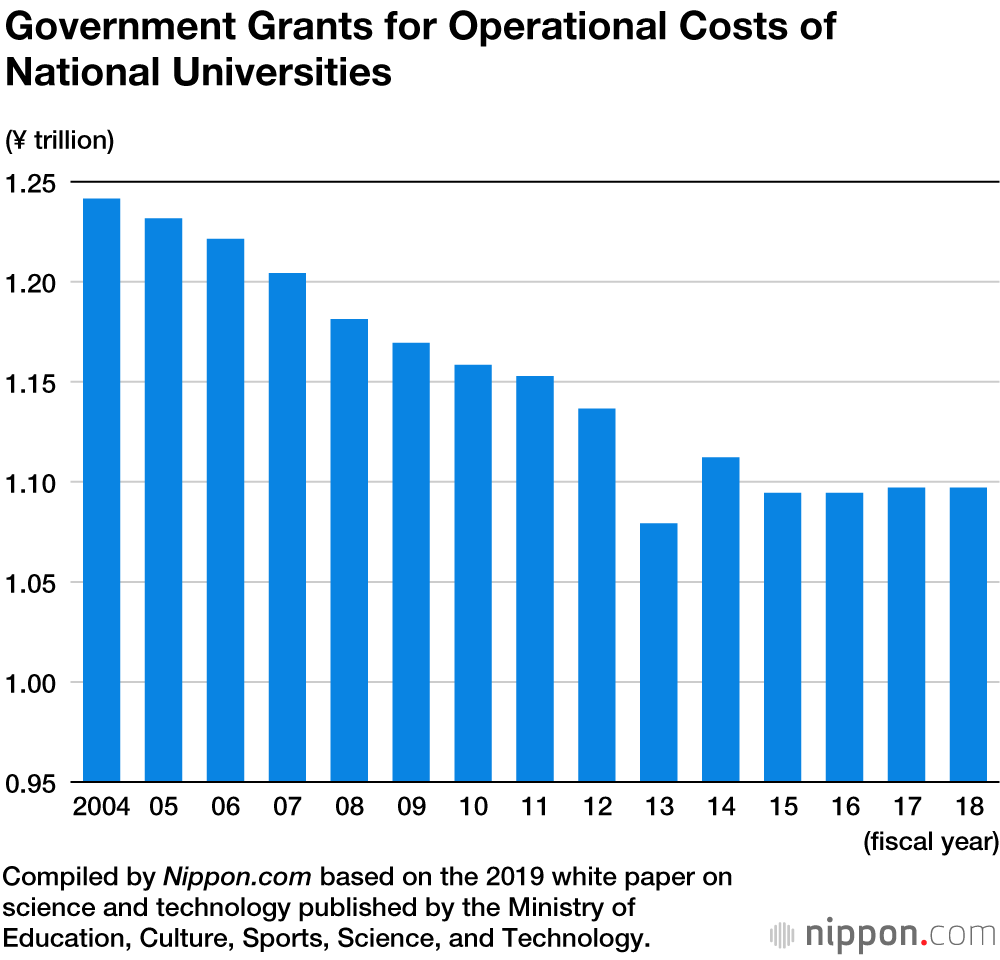
Dwindling Basic Research Weakens Japan’s Nobel Prospects
Science- English
- 日本語
- 简体字
- 繁體字
- Français
- Español
- العربية
- Русский
The number of academic papers published is considered an index of the quantity and quality of research. According to a 2019 white paper on science and technology published by the Ministry of Education, Culture, Sports, Science, and Technology (MEXT), Japan ranked second globally, behind the United States, for the average number of academic papers published during the period from 2004 to 2006, but slipped to fourth during 2014 to 2016. Between those same two periods of time, Japan also fell from fourth to ninth place in the ranking of the number of papers in each field that placed in the top 10% by citations; whereas China rose from fifth to second place in this category.
Country Ranking for Number of Papers in Top 10% by Citations
| 2004–06 | 2014–16 | |
|---|---|---|
| 1 | United States | United States |
| 2 | Britain | China |
| 3 | Germany | Britain |
| 4 | Japan | Germany |
| 5 | China | Italy |
| 6 | France | France |
| 7 | Canada | Australia |
| 8 | Italy | Canada |
| 9 | The Netherlands | Japan |
| 10 | Spain | Spain |
Compiled by Nippon.com based on the 2019 white paper on science and technology published by the Ministry of Education, Culture, Sports, Science, and Technology.
The MEXT white paper noted that basic research involves steady, painstaking scholarship to clarify fundamental principles, and that “in many cases it takes a long time until the fruit of research comes to light, and it is not always clear right away how the results will be of practical use.” Today, when the emphasis is on immediate benefits, such as commercialization, such basic research tends to be neglected.
Underlying the stagnation in basic research is the worsening environment for national universities. According to the white paper, the subsidies provided by the government to national universities to cover operational costs were 11.6% lower in fiscal 2018 than in fiscal 2004, and this level has remained basically unchanged over the four years leading up to fiscal 2018. In addition, the amount time university professors in the sciences dedicate to research among their overall work-related time fell from 56.9% in 2002 to 51% in 2013. Meanwhile, the amount spent by professors on educational activities rose from 20.5% to 22.7% between those same two years, revealing how the additional hours spent on student guidance are cutting into time available for research.
Up to now, Japan has been considered a scientific superpower, as reflected in the 23 Japanese-born academics who have been awarded the Nobel Prize in the fields of physiology/medicine, physics, and chemistry. One of these Nobel laureates, Ōsumi Yoshinori, who was awarded the Nobel Prize for Physiology or Medicine in 2016, expressed his “grave concerns” about the current overemphasis on applied research, noting that “new progress is impossible without basic research.” The MEXT white paper similarly questioned whether Japan will be able to continue producing researchers who can generate outstanding, globally recognized results.
(Translated from Japanese. Banner photo © Pixta.)
